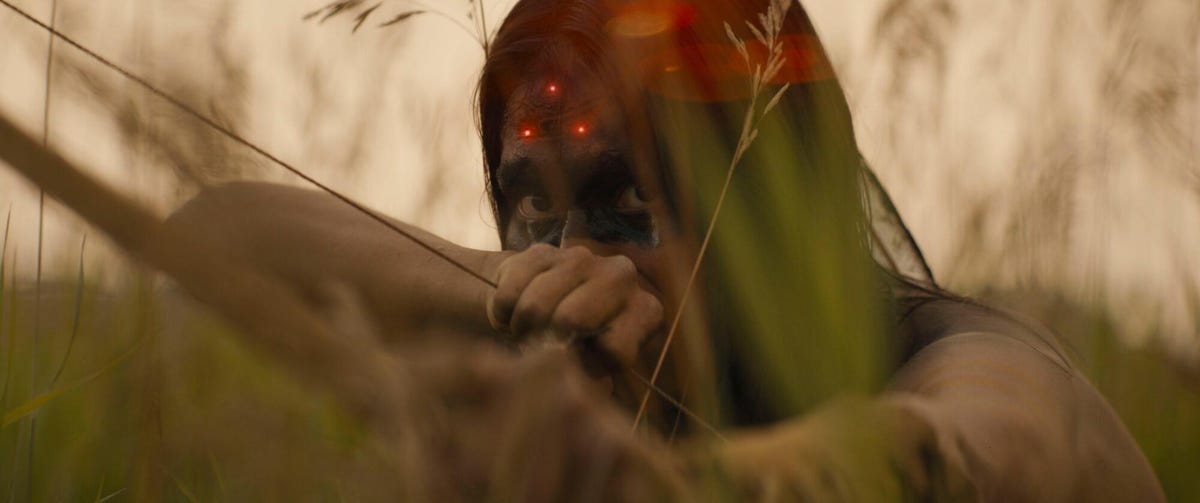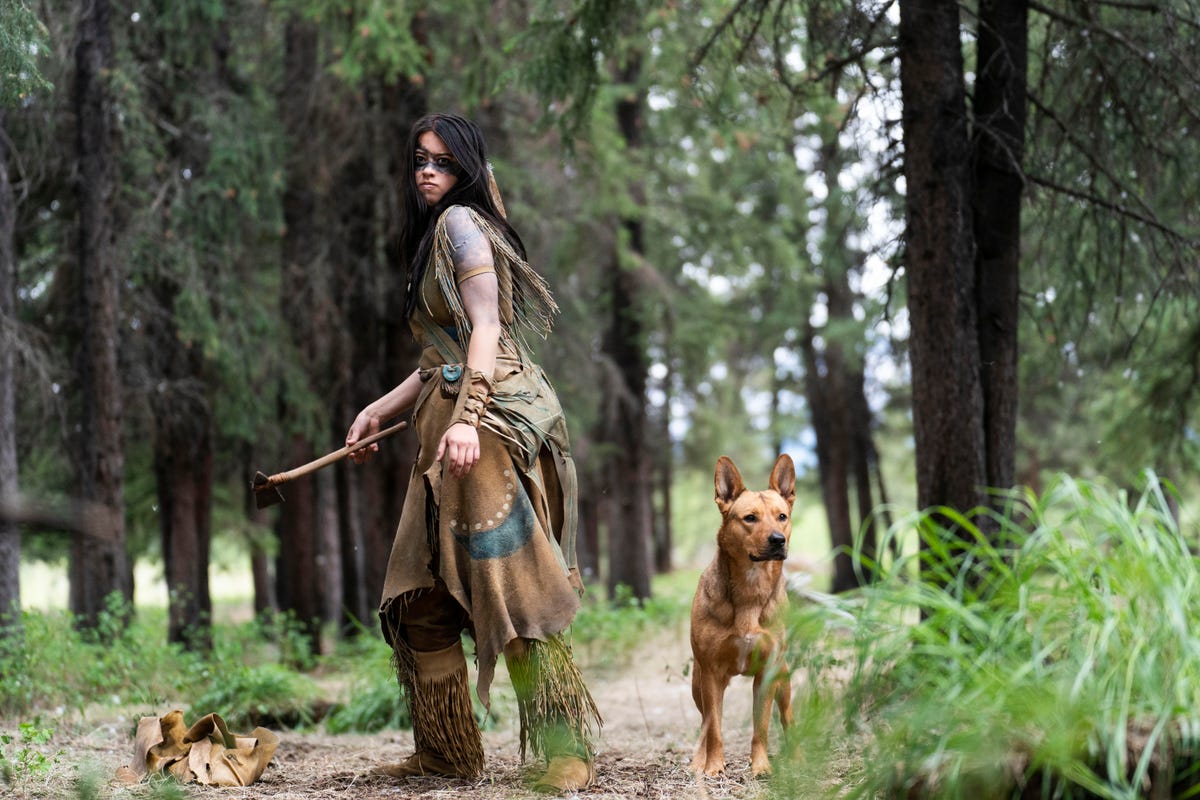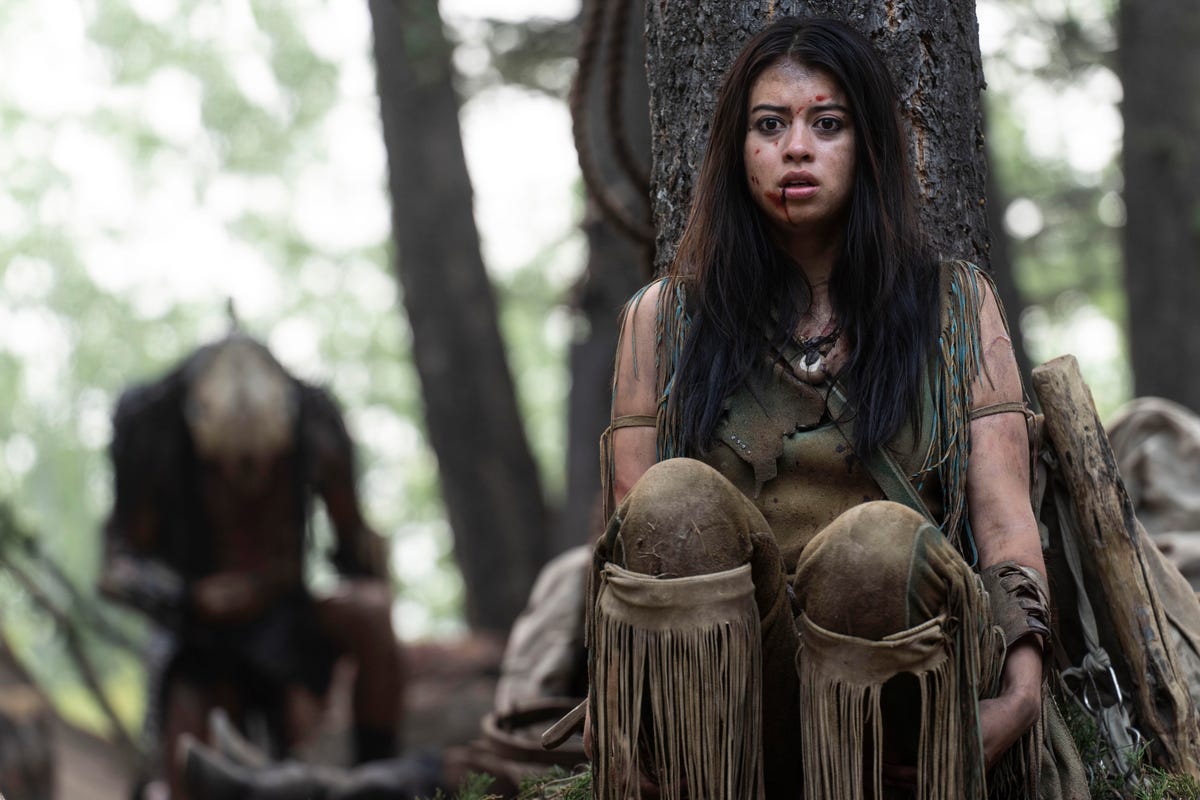
We know the Predator bleeds and we can kill it. We’ve known that since Arnold Schwarzenegger took on one of the alien hunters in 1987. Yet, instead of diving further into gritty action fare, every movie since opted for unsatisfying sci-fi ridiculousness.
Prequel movie Prey, which came to Hulu on earlier this month (and Disney Plus Star outside the US), leans away from much of that by turning the clock back to 1719 and pitting Native American warrior Naru (Amber Midthunder) against one of these extraterrestrial creatures. It’s the kind of stripped-back approach these movies were crying out for, with director Dan Trachtenberg (who previously helmed 10 Cloverfield Lane) crafting an excellent modern take on the original.
We spend the early part of the movie taking in the rugged, untamed wilderness of the Great Northern Plains with the quietly intense Naru. The beautiful cinematography and hypnotic score make it easy to get lost in her world as she hones her skills as a hunter, gets out of some tight scrapes and explores with her delightful canine sidekick Sarii — their bond is absolutely lovely.

There are some awesome twists on the Predator’s traditional weapons.
20th Century Studios
The lone Predator is used sparingly as it operates in parallel, establishing itself as the apex hunter. The retro versions of its other tech are fun to see, even if its iconic cloaking device still feels like cheating.
Their narratives converge in a visceral sequence that’ll sear itself into every fan’s memory forever, and the movie grabs you by the throat from that moment on as Trachtenberg goes all-out on the action and gore.
However, the final battle is drenched in the shadow of night, making it hard to discern what’s happening as both predator and prey unleash an arsenal of gadgets. This makes sense as a contrast to the brightness and clarity of other action scenes, but might require multiple viewings for you to parse all the details.

Every movie hero should have a dog as good as Sarii.
20th Century Studios
Prey works because its protagonist isn’t the kind of muscle-bound, all-guns-blazing action hero these movies are known for, or part of a forgettable ensemble on some vague sci-fi quest. Instead, Naru is a clever, observant human being, and her occasionally tense relationships with her brother and other fellow Comanche Nation tribespeople give the movie emotional resonance. (There’s no tension with her dog though. He’s perfect.)
They’re still a bunch of badasses, though, wielding their bows and spears with tactical precision and moving through the forest like a special forces squad. This kind of imagery can be cliched in modern settings, but it’s incredibly visually engaging here.
We get a satisfying escalation in the dangers they face, too, since their beautiful environment is full of deadly natural threats and foreign poachers (whose French dialogue isn’t translated with subtitles, cleverly giving us the sense that they’re alien invaders, too). It grounds the movie nicely and builds up to the Predator rather than flinging us straight into the sci-fi deep end.

The Predator is cleverly obscured for much of the movie.
20th Century Studios
It’s also extremely cool that the movie was produced by Jhane Myers, a member of the Comanche nation, and most of the cast are Native American or Canadian First Nation, suggesting an admirable commitment to authenticity. You can also watch with a Comanche dub and subtitles for full cultural immersion, but they weren’t available on the prerelease version.
This is easily the best Predator movie we’ve had since the original, with a well-developed protagonist (and her excellent dog), a rich cultural base and clever use of an iconic movie monster. More sci-fi movies should take this kind of grounded approach, and this franchise should just pit its alien hunters against humans in magnificently realized historical settings from now on.
For now though, stick around and give Prey a watch.
